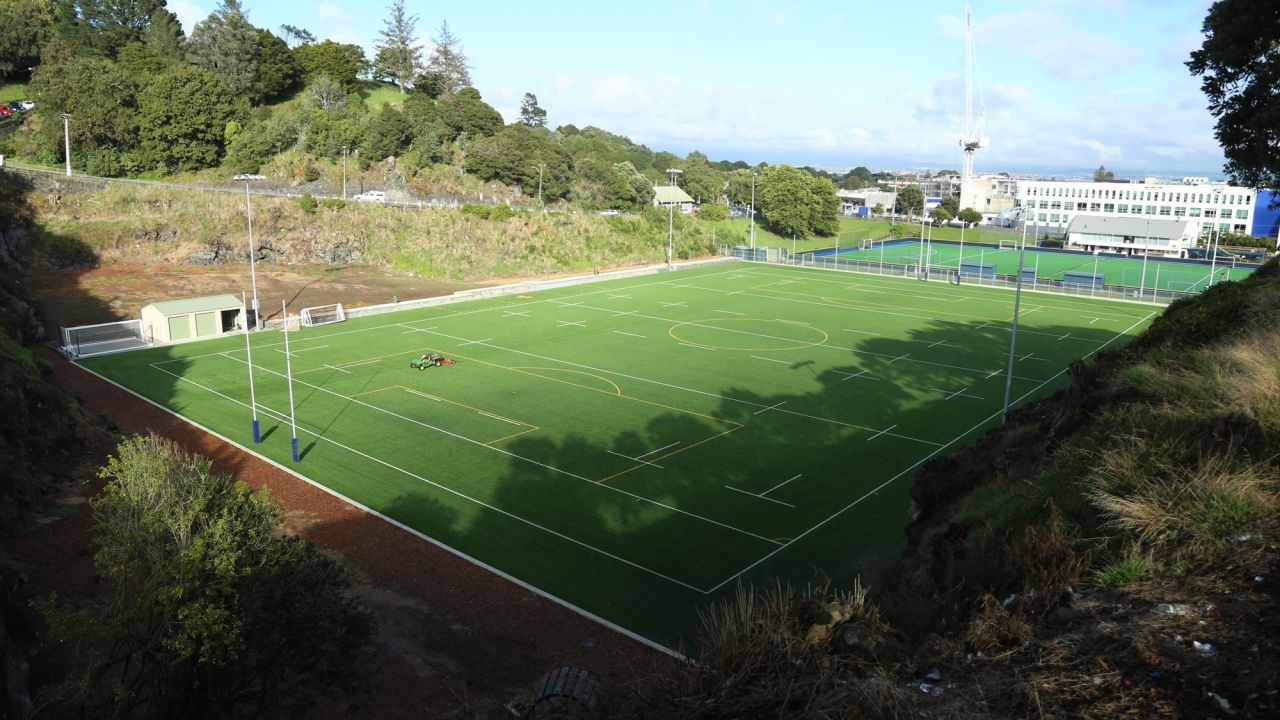Property development is a crucial aspect of economic growth, particularly in regions like New Zealand where the demand for housing and commercial spaces continues to rise. However, not all property development projects succeed. In fact, many encounter significant challenges that lead to their failure. Understanding these pitfalls can provide invaluable insights for developers, investors, and policymakers alike. In this article, we'll explore six primary reasons why some property development projects fail, with a focus on the New Zealand context.
1. Poor Financial Planning and Management
One of the most critical factors leading to the failure of property development projects is inadequate financial planning. In New Zealand, the property market is subject to fluctuations influenced by factors such as interest rates, inflation, and government policies. According to the Reserve Bank of New Zealand, interest rates have a profound impact on property investment decisions. Without a robust financial plan that accounts for these variables, developers may find themselves in financial distress.
For example, a developer might overestimate the market demand or underestimate the costs associated with construction and legal compliance. This mismanagement can lead to budget overruns and cash flow problems, ultimately causing the project to stall or fail entirely.
Case Study: Financial Mismanagement in Auckland
An Auckland-based developer embarked on a residential project without a comprehensive financial strategy. The project was initially budgeted at NZD 10 million yet faced unexpected costs due to rising material prices and changes in government regulations. The lack of contingency funds and poor financial oversight resulted in the project's cessation, highlighting the need for meticulous financial planning.
2. Insufficient Market Research
Understanding market dynamics is crucial for any property development project. In New Zealand, regional disparities mean that what works in Auckland might not be viable in Wellington or Christchurch. Market research involves analyzing demand, competition, and consumer preferences. Without this insight, developers risk launching projects that fail to attract buyers or tenants.
According to Stats NZ, shifts in population growth and urbanization significantly affect housing demand. Developers who fail to consider these trends may find their projects misaligned with market needs, leading to reduced profitability.
Case Study: Misjudged Market Demand in Christchurch
A commercial development in Christchurch was launched based on outdated market data, assuming a demand for retail spaces. However, with the rise of e-commerce, the demand for physical retail spaces had diminished. The project struggled to secure tenants, resulting in financial losses and the eventual sale of the property at a reduced price.
3. Regulatory Hurdles and Compliance Issues
New Zealand's regulatory environment is designed to ensure sustainable development, yet it can pose challenges for developers. Compliance with zoning laws, environmental regulations, and building codes is non-negotiable. Failure to navigate these requirements can result in project delays, legal penalties, or even project cancellations.
The Ministry of Business, Innovation, and Employment (MBIE) frequently updates building standards to enhance safety and sustainability. Developers who do not stay abreast of these changes may find themselves in violation of regulations, leading to costly corrections or project halts.
Case Study: Regulatory Compliance in Wellington
A Wellington-based developer faced significant delays due to non-compliance with updated seismic regulations. The project, originally scheduled for completion in 2023, was pushed back by two years. The additional costs and time required to meet the new standards highlighted the importance of regulatory awareness and proactive compliance.
4. Environmental and Social Considerations
Increasingly, property development projects are under scrutiny for their environmental and social impacts. In New Zealand, where natural landscapes are integral to national identity, developments that threaten ecological balance often face public opposition and legal challenges.
For instance, projects that fail to incorporate sustainable practices or disregard the interests of local communities may struggle to gain approval or face operational resistance. According to a University of Auckland study, integrating community feedback and sustainable practices from the outset can significantly enhance project acceptance and success.
Case Study: Sustainable Development in Queenstown
A proposed luxury resort in Queenstown faced backlash for potential environmental degradation. By engaging with local communities and adopting sustainable building practices, the developers were able to redesign the project to minimize ecological impact, gaining community support and ensuring regulatory approval.
5. Poor Project Management
Effective project management is vital for the timely and within-budget completion of property developments. Inadequate planning, poor communication, and a lack of skilled leadership can lead to project delays, increased costs, and ultimately, failure.
In New Zealand, where construction skills shortages have been noted by MBIE, the importance of having a competent project management team cannot be overstated. Successful projects often involve experienced managers who coordinate resources, timelines, and stakeholder communications effectively.
Case Study: Project Management Excellence in Hamilton
A Hamilton-based residential project achieved completion three months ahead of schedule and under budget due to exceptional project management. The team utilized advanced project management software to streamline communications and resource allocation, demonstrating the impact of skilled management on project success.
6. Economic and Political Instability
The broader economic and political climate can significantly affect property development projects. Economic downturns, changes in government, or shifts in policy can alter market conditions, affecting project feasibility and profitability.
In New Zealand, recent changes in property tax laws and foreign investment regulations have impacted property development dynamics. According to a report by NZ Property Investors’ Federation, developers must be agile and responsive to such changes to mitigate risks associated with economic and political instability.
Case Study: Economic Resilience in Tauranga
Despite a nationwide economic slowdown, a mixed-use development in Tauranga thrived by adapting its business model to focus on affordable housing, aligning with government incentives for first-time homebuyers. This strategic pivot allowed the project to maintain profitability and market relevance.
Common Myths & Mistakes
Myth vs. Reality
- Myth: "All property developments guarantee high returns." Reality: Without adequate market research and risk management, developments can lead to significant financial losses.
- Myth: "Regulations are just bureaucratic hurdles." Reality: Compliance is essential for legal and operational success, and can enhance project sustainability and community support.
- Myth: "Sustainability is an afterthought." Reality: Incorporating sustainability early can reduce costs, enhance brand reputation, and ensure regulatory compliance.
Biggest Mistakes to Avoid
- Ignoring Market Trends: Stay informed about local and global market trends to anticipate shifts in demand and consumer preferences.
- Underestimating Costs: Always include a contingency budget to manage unexpected expenses.
- Neglecting Community Engagement: Engage with local stakeholders to build support and mitigate resistance.
- Overlooking Regulatory Changes: Regularly review regulatory updates to ensure compliance and avoid costly delays.
Future Trends & Predictions
Looking ahead, property development in New Zealand will increasingly focus on sustainability and community integration. The MBIE forecasts a rise in demand for green buildings, with policies encouraging energy-efficient and environmentally friendly construction practices. Additionally, the use of technology, such as AI and data analytics, will become more prevalent in project planning and management, enhancing precision and efficiency.
Final Takeaways
- Robust financial planning and market research are critical to project success.
- Compliance with regulations and community engagement can enhance project acceptance.
- Adaptability to economic and political changes is essential for long-term sustainability.
- Investing in skilled project management and sustainable practices can mitigate risks and maximize returns.
Ready to navigate the complexities of property development in New Zealand? Stay informed with the latest insights and strategies by subscribing to our newsletter. Share your experiences and insights in the comments below!
People Also Ask
- How does poor financial planning affect property development in New Zealand? Poor financial planning can lead to budget overruns and project delays, as seen in recent developments where costs were underestimated.
- What are the biggest misconceptions about property development? One common myth is that all developments guarantee high returns, but without proper market research, they can result in losses.
- Who benefits the most from sustainable property development? Sustainable development benefits developers, local communities, and the environment by ensuring long-term viability and community support.
Related Search Queries
- New Zealand property development trends
- Common challenges in real estate projects
- Sustainable building practices in NZ
- Impact of economic changes on property development
- Best project management strategies for developers


































LazaroBloo
9 months ago